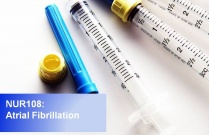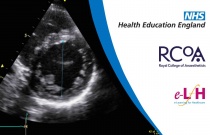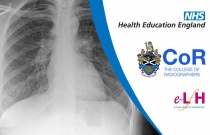NHA102: Infection Control
Mary McGeough, R.N., B.S.N.
Nursing home administrators will review and gain knowledge of current and emerging infection control procedures, common health care-related infections, infectious disease outbreaks, and how to develop effective infection control programs within a health care facility.
NUR107: Arrhythmia
Linda Fisk, BS, RN
An arrhythmia is a problem with the rate or rhythm of the heartbeat. During an arrhythmia, the heart can beat too fast, too slow, or with an irregular rhythm. A heartbeat that is too fast is called tachycardia. A heartbeat that is too slow is called bradycardia. Most arrhythmias are harmless, but some can be serious or even l....
NUR108: Atrial Fibrillation
National Institutes of Health (NIH)
Atrial fibrillation, or AF, is the most common type of cardiac (heart) arrhythmia. An arrhythmia is a problem with the rate or rhythm of the heartbeat. During an arrhythmia, the heart can beat too fast, too slow, or with an irregular rhythm. AF occurs if rapid, disorganized electrical signals cause the heart's two upper chamb....
Effects of Disasters on People of Low Socioeconomic Status
Substance Abuse and Mental Health Services Administration
1.00 Hours
Being of low socioeconomic status (SES), in the United States and around the world, may affect how people understand disaster risk, prepare for disasters, and respond to warnings and evacuation orders. This CEU course focuses on how people in poverty, with low income, and low SES experience disasters by exploring the difference....
Marijuana and Cannabinoid Neuroscience
Ken Mackie, M.D., et al.
1.00 Hours
This short CEU course focuses on the neurological and psychiatric effects of marijuana, other cannabinoids, and the endocannabinoid system. Both the adverse and the potential therapeutic effects of the cannabinoid system are discussed.
Medication Assisted Treatment for Opioid Addiction - Phased Approach
Steven Batki, M.D., et al.
4.00 Hours
A core group of basic- and extended-care services is essential to the effectiveness of medication-assisted treatment (MAT) for opioid addiction. This CE course describes the phase-treatment approach and duration, approaches to providing comprehensive care and maximizing patient retention, and using drug testing as a tool.
Hallucinogens and Dissociative Drugs
NIDA (the National Institute on Drug Abuse)
1.00 Hours
NIDA (the National Institute on Drug Abuse) research is developing a clearer picture of the dangers of hallucinogenic and dissociative drugs. In this paper, they have compiled the scientific information to inform readers and hopefully prevent the use of these drugs. *This course is not approved for NBCC renewal.
Marijuana: Effects on Brain, Body and Behavior
Industry Specialist
2.00 Hours
This short course covers selected effects of marijuana on the brain, body and behavior. In addition to information about how it affects the mind and body, it includes statistics on marijuana use in the US. *This course is not approved for NBCC renewal.
Clinical Drug Testing in Primary Care
Industry Specialist
10.00 Hours
This course provides information that clinical practitioners need when deciding whether to introduce drug testing in their practices. It offers guidance on implementing drug testing, and describes some of the ways that drug testing can contribute to assessment, diagnosis, and treatment of patients seen in primary care. It also c....
Mental Health Medications Update 2012
Industry Specialist
3.00 Hours
This course gives a brief overview of how psychotherapeutic medications are used as treatment for mental illnesses. It covers specific medications for treating schizophrenia, depression, bipolar disorder, anxiety disorders, and ADHD. In addition to describing each type of mental disorder and the effect medications have on it, th....
HIV AIDS Clinical Care - Oral Health
Industry Specialist
1.00 Hours
This short CEU course provides information on oral health for those working with HIV and AIDS patients.
Clostridium difficile Infection in the Intensive Care Unit
David J. Riddle, M.D. and Erik R. Dubberke, M.D., M.S.P.H.
0.50 Hours
Clostridium difficile infection (CDI) is becoming more common worldwide. The morbidity and mortality associated with C. difficile is also increasing at an alarming rate. Critically ill patients are at particularly high risk for this disease due to the prevalence of multiple risk factors in the patient population. Treatment of....
Fungal infections and critically ill adults
Martin Beed FRCA FFICM DM Richard Sherman MRCP FRCA FFICM Stephen Holden MSc FRCPath
0.50 Hours
Although there are many different species of fungi, relatively few are responsible for human illnesses. Fungal infections associated with critical illness are thought to be increasing in incidence, possibly as a result of the increasing population of immunocompromised individuals, more aggressive medical interventions and proce....
Hepatitis B: Natural History, Presentation and Investigation
Richard Gilson
0.50 Hours
This session describes the natural history and presentation of patients with either acute or chronic hepatitis B virus infection, and the investigations required.
Hepatitis B: Management
Jane Collier FRCP
0.50 Hours
This session describes the indications for treating hepatitis B, treatment options and how to monitor treatment.
Fluid management for trauma; where are we now?
Richard P Dutton MD MBA
0.50 Hours
This article will review the pathophysiology of haemorrhagic shock and will briefly address emerging and controversial therapies.
Image Interpretation - Cross-sectional Imaging: Intracranial Haemorrhage
Michael McNeill
0.50 Hours
This session will look at types of bleeding in the brain and their appearance.
Electrical Safety 1: Biological Effects, Electrical Hazards
Patrick Magee
0.50 Hours
This session examines the effects of electricity on different biological tissues, the way electricity is generated and supplied to electrical devices and how electrical hazards may arise for the patient connected to an electromedical device.
Initial Assessment of the Burn Patient
Jana Torres-Grau and Jonathon Pleat
0.50 Hours
This session describes the steps that should be taken during the initial assessment of patients with major burns. Later sections will identify the life threatening complications that may arise in the early period after a burn has occurred.
Fluid Resuscitation in Burns
Onur Gilleard and Nora Nugent
0.50 Hours
This session explores the changes that affect fluid balance following a major burn. Later sections describe the resuscitation fluids that are used and the complications that can result from fluid resuscitation.
Initial Management of Chemical Burns
Henrietta Creasy and Peter Drew
0.50 Hours
This session will describe how to decontaminate the skin following chemical exposure, focusing in depth on the initial treatment of hydrofluoric acid and phosphorus burns.
Left Ventricular Function
Dave Woodward
0.50 Hours
This session will explain normal left ventricular (LV) function and how to diagnose an abnormal left ventricle (LV). Qualitative and quantitative methods of assessing LV function will be described. Attention is drawn to ways in which pathology and interventions may influence the interpretation of a basic transthoracic echocardio....
Image Interpretation - Plain X-rays of the Adult Chest: Interstitial Lung Disease
Andrew Yeung
This session will look at the interstitial pattern of opacification which is commonly seen in chest radiographs. The anatomy and physiology of the lung interstitium will be presented. This will be correlated with the clinical and radiological features associated with common interstitial lung diseases, and other processes, which....
Image Interpretation - Radiographs of the Adult Abdomen: Normal Abdominal Radiograph
Nigel Hughes
0.50 Hours
This session will look at the normal radiograph of the abdomen. It will focus on identifying anatomy and the normal bowel gas pattern demonstrated on radiographs. Indications for abdominal radiography will be discussed along with guidance on writing a report.
Image Interpretation - Radiographs of the Adult Abdomen: Gas and Soft Tissue Abnormalities
Andrew Yeung
0.50 Hours
This session will look at the gas and soft tissue structures of the abdomen and how they appear on abdominal radiographs. Common pathological processes in relation to these are presented and key imaging findings are described.

















